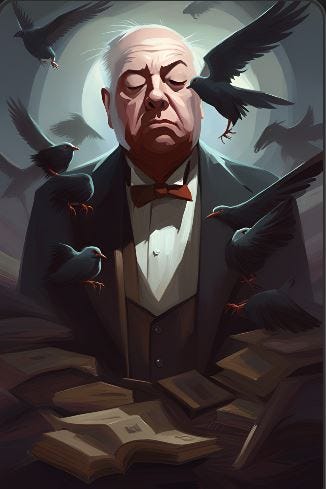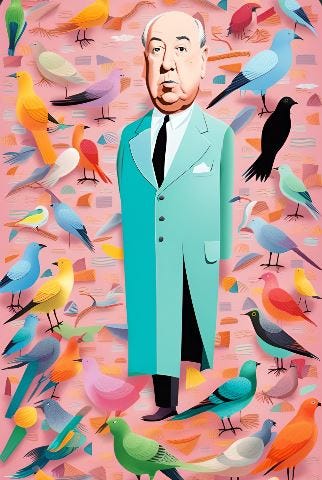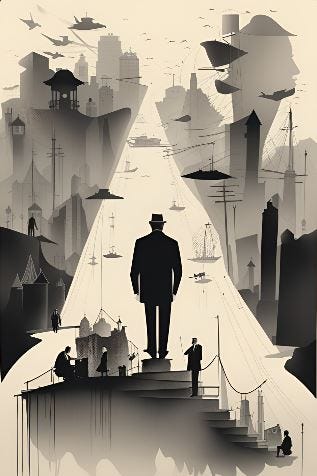Alfred Hitchcock: "drama is life with the dull bits cut out."
On the other hand, "Poetry" extracts the critical, emotional, and analytical content of the boring parts of life.
In 1956 Hitchcock conducted a preview of his latest film “The Man Who Knew Too Much”. Popular syndicated columnist Leonard Lyons praised the work and relayed a quotation from the director:[1]
It’s perfect Hitchcock, full of suspense, color and constant interest. The director said after the showing: “Movies have lost a lot by this new trend towards documentary realism at the sacrifice of fantasy. After all, drama is life with the dull bits cut out.“
Alfred Hitchcock's quote about movies being "life with all the dull parts cut out" highlights the captivating and condensed nature of filmmaking. Movies selectively extract the most engaging and impactful moments of life, leaving behind the mundane and uneventful aspects. This selective focus allows movies to concentrate on the emotional core of experiences, drawing viewers into the narrative and evoking a range of feelings.
In contrast, poetry, while also engaging with the human experience, often delves into the seemingly mundane and insignificant aspects of life. It finds beauty and meaning in the ordinary, the overlooked, and the seemingly trivial. Poetry examines the "boring parts" of life not with disdain but with a critical, emotional, and analytical eye, seeking to uncover the underlying truths and complexities hidden within the commonplace.
While Hitchcock's statement emphasizes the escapist and entertaining qualities of cinema, poetry invites a more contemplative and introspective engagement with life. It encourages readers to pause, reflect, and question their perceptions of the world around them. Poetry challenges us to find meaning in the seemingly mundane, to appreciate the subtle nuances of language, and to connect with the universal human experience.
Therefore, while Hitchcock's quote captures the essence of movies as a form of escapism and entertainment, poetry offers a complementary perspective, inviting us to delve into the depths of the human experience, including its seemingly mundane aspects. Both movies and poetry serve as powerful tools for understanding ourselves and the world around us.
By Tezozomoc © 2023 11 27







